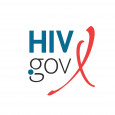This message is cross-posted from the U.S. Department of State and written by Dr. John Nkengasong, Ambassador-at-Large, U.S. Global AIDS Coordinator and Senior Bureau Official for Global Health Security and Diplomacy, Bureau of Global Health Security and Diplomacy
Today marks the 35th World AIDS Day. An important day where the world comes together in solidarity to honor people we’ve lost and those living with and affected by HIV/AIDS.
World AIDS Day 35: Remember and Commit, the theme for this year, has special meaning for the U.S. President’s Emergency Plan for AIDS Relief, as we are celebrating the 20th anniversary of PEPFAR and remembering the remarkable progress we’ve made over the past 20 years; while committing to continued collaboration with our partners to end HIV/AIDS as a public health threat by 2030.
The early days of the HIV/AIDS pandemic were dire. In 2003, an HIV diagnosis was a death sentence, with only 50,000 people across sub-Saharan Africa receiving the life-saving HIV treatment they needed. At that time, coffin making was a booming business and the overwhelming majority of the 15 million children under the age of 18 who had lost one or both parents to AIDS were in sub-Saharan Africa.
In the late ’90s, I worked for the U.S. Centers for Disease Control at a CDC research station called Retrovirus Côte d’Ivoire project (Projet RETRO-CI). I have very vivid memories of people bringing their dying loved ones in wheelbarrows and taxis and tearfully leaving them outside in the courtyard because they didn’t have the means to care for them. It was heartbreaking, as each family knew they would never see their loved ones alive again.
At the height of the pandemic, the United States showed compassion and leadership when former President George W. Bush announced that he was establishing PEPFAR — a program to address the devastating impact of HIV/AIDS across sub-Saharan Africa. This bold decision by President Bush, coupled with 20 years of bipartisan support from Congress and the generosity of the American people, resulted in more than 25 million lives saved, including more than 5.5 million babies who have been born HIV-free because of PEPFAR. Today, PEPFAR supports nearly 20.5 million people with lifesaving antiretroviral therapy. In my recent visit to Cameroon and other PEPFAR-partner countries, I had the opportunity to meet with mothers who are on HIV treatment and healthy because of PEPFAR. I also meet their babies who are HIV-free and have the opportunity for a promising and healthy future.
PEPFAR changed the course of the HIV/AIDS pandemic through investments that have helped build more than 70,000 facility and community health clinics and 3,000 laboratories; helped strengthen supply chains for HIV-related commodities; and strengthened data collection systems, as well as the use of data for program improvement. In FY 2023, PEPFAR has directly supported over 327,000 health care workers to deliver prevention, treatment and support services. Compounding this benefit, partner countries have leveraged the infrastructure supported by PEPFAR to respond to other disease threats, including COVID-19, Ebola, H1N1, tuberculosis and mpox.
Despite our remarkable progress in transforming the course of the HIV/AIDS pandemic from the early days of death and despair to the hope and opportunity we have today, we still have a lot of work to do — as a global community — to end HIV/AIDS as a public health threat and to ensure the response is sustained.
As the largest commitment by any nation to address a single disease in history, PEPFAR remains driven by evidence and data and committed to our partnerships with PEPFAR-supported countries. That’s why the Biden-Harris Administration continues to urge Congress to reauthorize PEPFAR as part of our commitment to end HIV/AIDS as a public health threat by 2030.
Together, we can get through the last mile in this fight, continue to save lives and ensure that we never return to the early days of the HIV/AIDS pandemic.
This blog post was published December 1, 2023, on HIV.gov.
To read a collection of POZ articles on PEPFAR, including the dire funding crisis it currently faces, click #PEPFAR. You’ll find headlines such as “Global Leaders Urge Congress to Support AIDS Program PEPFAR.”








Comments
Comments